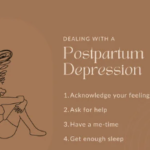In Nigeria and across Africa, the field of mental health is undergoing a transformation. As awareness grows around issues like Autism and other neurodevelopmental conditions, so does the demand for mental health professionals. Whether you’re a psychiatrist, psychologist, nurse, or therapist, you’re at the forefront of this critical work. But there’s a growing issue that threatens not just your well-being but the quality of care you provide “burnout”.
If you’ve ever felt mentally, emotionally, and physically exhausted by the demands of your career, you’re not alone. Burnout is becoming an all-too-common experience among mental health professionals.
You may be working long hours, facing challenging cases, or perhaps dealing with systemic issues like underfunding and lack of resources. While your dedication is admirable, it’s essential to remember that burnout isn’t just harmful to you—it can have serious consequences for your patients too.
Understanding Burnout in Mental Health Careers
You’ve likely chosen this field out of a deep commitment to helping others. However, that same passion can sometimes lead to overextending yourself. Adeola Dorcas Folorunso, an experienced nurse and mental health advocate, has witnessed firsthand the toll burnout takes on professionals in the healthcare field.
In her words, “I have seen colleagues who subject themselves to extensive working hours for the right reasons, but in the long run, it affects their performance, and the quality of care provided.”
Burnout manifests in several ways: emotional exhaustion, depersonalization (feeling detached from your patients), and a reduced sense of personal accomplishment. You might find yourself feeling irritable, fatigued, or even questioning your competence.
Perhaps you’ve noticed that it’s becoming harder to connect with your patients, or maybe you’re struggling to complete your daily tasks with the same attention to detail as before. All of these are classic signs of burnout.
The Impact of Burnout on Patient Care
In the mental health field, the stakes are high. When you’re burnt out, it’s not just your mental health that suffers—your patients may be at risk too. Adeola emphasizes that burnout can lead to serious professional consequences, including medical errors, poor documentation, and strained rapport with patients.
In a country like Nigeria, where mental health resources are already stretched thin, the cost of burnout can be devastating. If you’re not functioning at your best, you might inadvertently compromise the safety and well-being of the very people you’re trying to help.
Studies have shown that burnout among healthcare professionals can lead to poorer patient outcomes, including lower patient satisfaction and increased medical errors. In mental health, this can mean delayed diagnoses, ineffective treatments, or a breakdown in the therapeutic relationship, all of which can worsen a patient’s condition.
This is particularly concerning for vulnerable populations, such as children with Autism Spectrum Disorders (ASD), who rely on consistent and high-quality care.
Recognizing the Warning Signs of Burnout
To protect yourself and your patients, it’s important to recognize the early signs of burnout. You might notice emotional symptoms, such as irritability, depression, or a sense of detachment from your work.
Physically, you may feel constantly tired, even after a full night’s rest. Professionally, you may find that your documentation is becoming sloppy, or that you’re struggling to maintain focus during patient interactions.
Folorunso’s experiences highlight these symptoms: “Healthcare providers should be able to identify the symptoms of burnout or stress that could negatively affect their productivity, which could lead to medical errors, failing to complete daily tasks, poor documentation, poor rapport with patients, and irritability.”
By paying attention to these warning signs, you can take steps to address burnout before it reaches a critical point.
Causes of Burnout in Nigeria’s Mental Health System
In Nigeria, systemic challenges exacerbate the risk of burnout. The country has a severe shortage of mental health professionals, with only about 250 psychiatrists serving a population of over 230 million, according to a 2021 report by the Association of Psychiatrists in Nigeria.
This shortage means that professionals like you often face overwhelming caseloads, leading to long working hours and little time for recovery. Additionally, mental health services in Nigeria are underfunded, with less than 1% of the national health budget allocated to mental health.
Beyond these systemic issues, there are cultural factors at play as well. In many African societies, mental health is still stigmatized, and healthcare professionals are often expected to push through their own challenges without showing signs of weakness.
As Adeola Folorunso points out, “No employer should expect its workers to work as robots or machines without quality breaks in between.” Despite these pressures, it’s crucial to recognize that your well-being is just as important as the work you do.
Practical Strategies to Prevent and Address Burnout
So, how can you protect yourself from burnout? Adeola Folorunso, who has extensive experience in both Nigeria and Canada, offers practical strategies that can help you manage stress and prevent exhaustion from taking over your career. Here are some of her recommendations:
- Acknowledge the Stress: The first step is to recognize when you’re feeling overwhelmed. Denying or ignoring stress won’t make it go away—in fact, it can make things worse in the long run. Take the time to assess how you’re feeling and what might be contributing to your stress.
- Identify the Root Cause: Once you’ve acknowledged your stress, it’s important to understand its source. Is it your workload, the nature of your cases, or perhaps the lack of support from your organization? Doing a root cause analysis can help you target specific changes that need to be made.
- Know Your Limits: It’s tempting to push yourself to meet the needs of your patients but remember that you have limits. If you’re feeling overwhelmed, don’t hesitate to delegate tasks, ask for help, or take a break. Folorunso advises, “Delegate, ask for help, relax, and talk to a loved one or colleague.”
- Seek Professional Support: Sometimes, the best thing you can do is reach out to a mental health professional yourself. Whether it’s a psychologist, psychiatrist, or counselor, having someone to talk to can make a significant difference in managing stress and avoiding burnout.
- Join Social Networks or Groups at Work: Isolation can worsen feelings of burnout. Building connections with your colleagues can provide a sense of community and support. Join professional networks or informal groups where you can share experiences and advice with others who understand what you’re going through.
- Plan Rest Periods: Don’t feel guilty about taking time for yourself. Scheduling regular breaks or personal time is essential for recharging both mentally and physically. As Folorunso says, “Set out personal resting time—don’t feel guilty; you are not lazy.”
- Don’t Be Afraid to Make Changes: If your current job or location is contributing to your burnout, it might be time to consider a change. This doesn’t mean you’re giving up—it’s about protecting your health and ensuring you can continue to provide quality care in the long term.
The Role of Employers and Healthcare Leaders
Preventing burnout isn’t solely your responsibility—healthcare employers and leaders have a crucial role to play too. Adeola stresses the importance of emotionally intelligent leadership in the healthcare field: “Healthcare leaders should be emotionally intelligent and strategically be on the lookout for the mental wellness and well-being of their workers.”
Employers need to create work environments where staff can take regular breaks, access mental health support, and maintain a healthy work-life balance. This might involve implementing wellness programs, offering flexible working hours, or ensuring manageable caseloads.
Leaders should also be trained to recognize the signs of burnout in their teams and provide the necessary support before the problem escalates.
A Path Forward
Burnout doesn’t have to be an inevitable part of your career. By recognizing the warning signs and taking proactive steps to manage stress, you can protect both your well-being and the quality of care you provide.
As Adeola Folorunso’s work demonstrates, preventing burnout is about more than just self-care—it’s about ensuring that the mental health system as a whole can continue to serve those who need it most.
In the Nigerian context, where mental health resources are limited and the demands on professionals are high, addressing burnout is not just a personal issue—it’s a public health priority.
By prioritizing your mental health, you’re not only helping yourself—you’re ensuring that your patients receive the compassionate and high-quality care they deserve.
Conclusion
In the battle against burnout, knowledge is your greatest tool. Understanding the causes and symptoms of burnout, and taking steps to prevent it, can make all the difference in your career and your patients’ lives.
You don’t have to face this alone—whether through social support, professional help, or systemic change, there are paths to overcoming burnout.
Take the advice of leaders like Adeola and remember you can’t pour from an empty cup. Take care of yourself, so you can continue to take care of others.



















